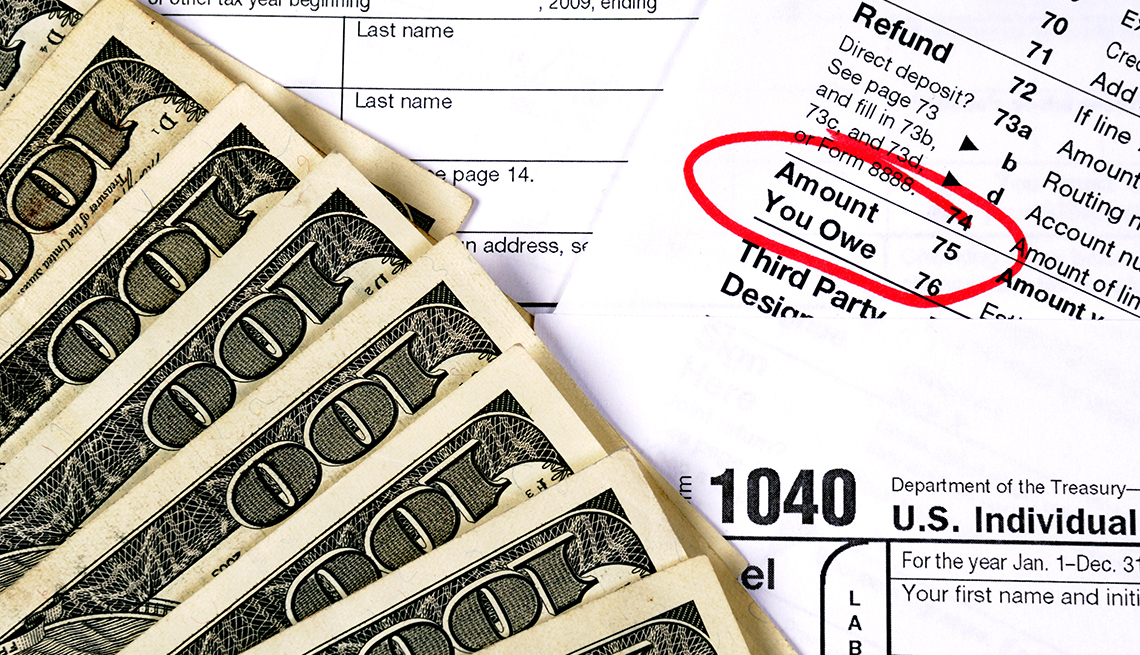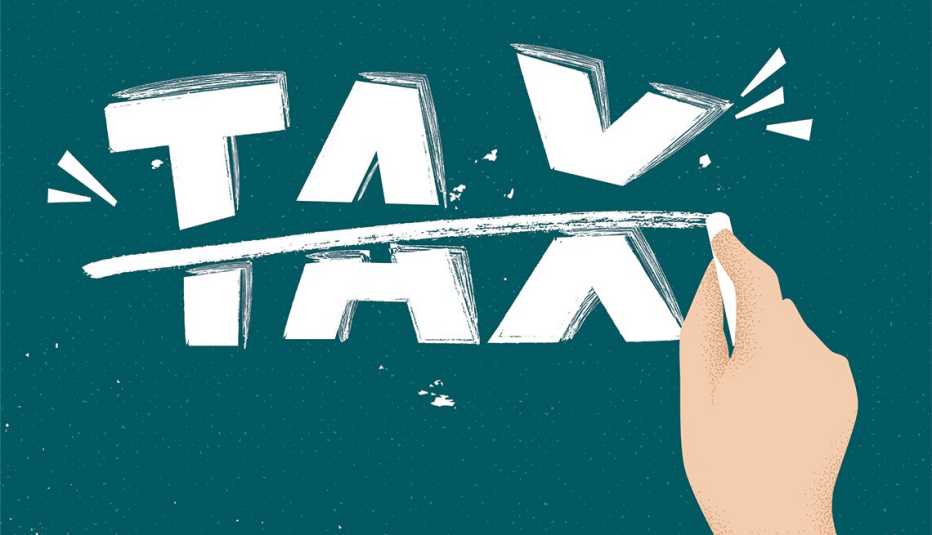AARP Hearing Center
You’ve checked and rechecked your federal income tax return and that $3,000 refund you were expecting turned out to be a $10,000 tax bill. What’s worse, you don’t have $10,000 in your savings account to send to the Internal Revenue Service (IRS). What should you do?
For starters, stay calm: Cooling your heels in Mexico for the next decade is probably not a good option. But don’t ignore the situation, either, because penalties and interest will pile up as you dither.
Instead, form an action plan and tackle the tax bill head-on. These five steps will help guide you through the process of dealing with an unexpectedly big tax bill.
1. Check again
If you’re doing taxes on tax software, make sure you didn’t put down the wrong information from your W-2 form or other tax notices. You’d be surprised how much you can owe because of a single wrong digit. (The IRS will generally kick back a return with wrong information on the W-2, but you may have to wait a while until it does.)
If you’ve hired accountants, make sure they explain why the bill is so high. They are not required to pay the extra tax, even if they made a mistake, although the IRS may waive penalties on the return.
2. File your return
The IRS charges two separate penalties for being late with your tax return. The first is a charge for missing the deadline — which, in most parts of the country, is April 15. (It's April 17, 2024, in Maine and Massachusetts due to state holidays, and people in disaster areas may get additional time to file.) The penalty for late filing is 5 percent of the amount due each month, and is the larger of the two penalties. The penalty for failure to pay is 0.5 percent a month and maxes out at 25 percent. (When both penalties are levied in the same month, the total penalty is 5 percent a month: 4.5 percent for failure to file and 0.5 percent for failure to pay.)
You may also be charged interest on unpaid taxes, at a rate the IRS determines quarterly. The rate for the three months ending June 30, 2024, is 8 percent.






































































